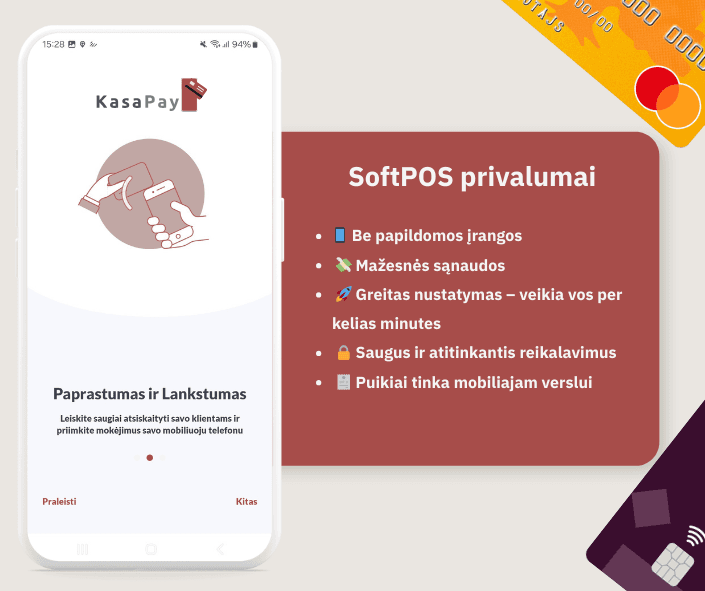The transition toward frictionless commerce reflects a fundamental shift in consumer behavior and business operations. As digital ecosystems mature, the concept of “point of sale” is dissolving into a fluid interaction between service providers and customers—anytime, anywhere. SoftPOS (Software Point of Sale) emerges not merely as a tool but as a natural progression in this trajectory, redefining payment infrastructure through software-driven agility. In markets like Lithuania, SMEs comprise 99% of businesses*, this shift isn’t just logistical—it’s economic empowerment.
Why SoftPOS Represents a Strategic Inflection Point
At its core, SoftPOS leverages the ubiquity of NFC-enabled smartphones to democratize payment acceptance. By eliminating proprietary hardware, it addresses three critical pressures facing modern businesses:
- Cost Complexity: Traditional terminals impose upfront capital expenditure and maintenance—a barrier for SMEs and gig workers.
- Operational Rigidity: Fixed checkout points conflict with evolving service models, from pop-up retail to doorstep healthcare.
- Scalability: Enterprises require adaptable solutions that align with dynamic customer touch points.
Sector-Specific Transformations: Beyond Transactions
Empowering Micro-Entrepreneurs: Vilnius’ vibrant café culture and artisan markets exemplify scenarios where SoftPOS bridges gaps. A baker or trader at Hales Turgus, for instance, can bypass traditional terminal rental costs and monthly fees and redirect his limited resources towards product quality or marketing.
Mobility-Driven Services: For gig workers in delivery or transport, payment acceptance is no longer tethered to vehicles or central hubs. A taxi driver can finalize a fare via smartphone, reducing friction, enhancing earning potential and increasing security by not accepting cash. This enables taxis to compete on a level playing field with competitors services such as Bolt or Uber.
Event Economy & Temporary Commerce:Lithuania’s growing festival scene—from Kaziukas and street fairs to large music events in Vingis Park—relies on transient vendors. SoftPOS reduces dependence on cash, aligning with younger demographics’ preference for card and mobile payments (87% of Lithuanians under 34 use digital banking^). It also enhances security for vendors by lowering the risk of theft from handling large sums of cash.

Challenges & Considerations
While SoftPOS adoption aligns with global cashless momentum, stakeholders must navigate:
- Security: PCI MPoC compliance and tokenization standards are non-negotiable.
- Consumer Habits: Cash remains prevalent among older demographics (32% of Lithuanians over 55 prefer it**).
- Regulatory Synergy: Harmonizing with BoL’s Payment Services Directive requires continuous dialogue.
Future Trajectory: Payment Systems as Invisible Utilities
As 5G and IoT mature, payments will increasingly embed into workflows—think smart mirrors in a clothing store authorizing payment for purchases in the moment or AR apps triggering checkout overlays. SoftPOS lays the groundwork for this and many other innovative integrations.
KasaPay is committed to regional adaptability, working closely with merchants to identify innovative opportunities and collaborating with partners to bring them to market.
* Statistics Lithuania, 2024
^ Bank of Lithuania, 2024 Financial Behavior Report
** Eurostat, 2024 Payment Preferences Survey




